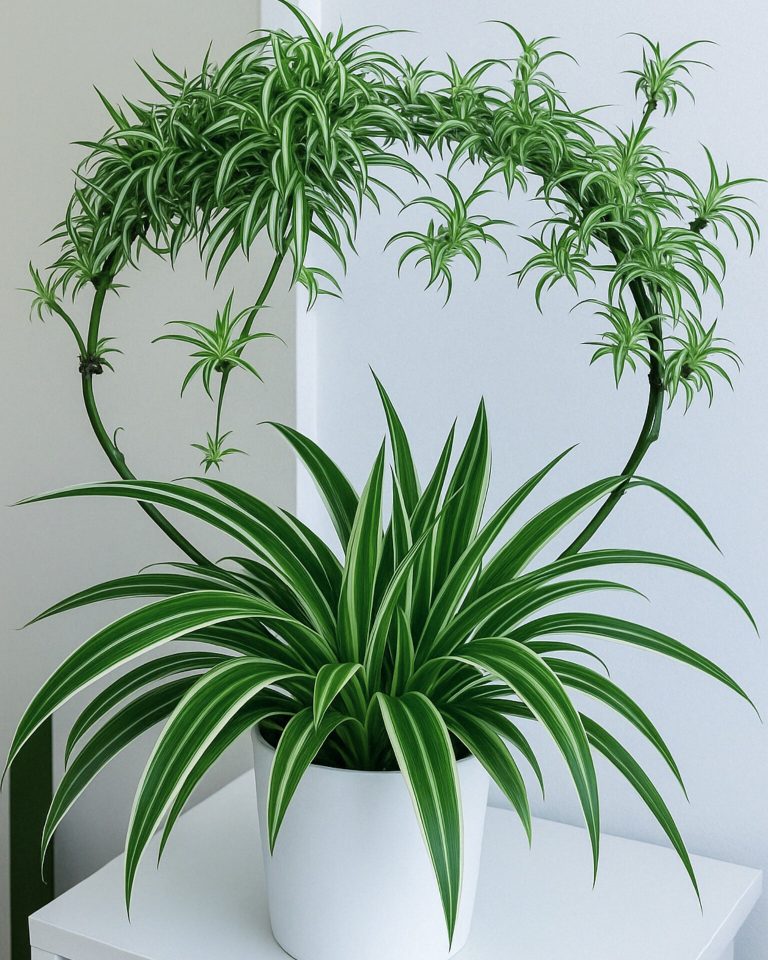Propagation: Growing Your Spider Plant Family
One of the most delightful aspects of Spider Plants is how readily they reproduce. The small plantlets (sometimes called “spiderettes” or “babies”) that develop on long stems make propagation incredibly simple.
Water Propagation
- Select a healthy plantlet with some small roots already forming
- Place it in a container of clean water, ensuring the root area is submerged
- Position in bright, indirect light and change the water weekly
- Once roots reach 1-2 inches in length (usually 2-3 weeks), transplant to soil
Direct Soil Propagation
- Leave the plantlet attached to the mother plant until it develops small roots
- Place a small pot with moist soil near the mother plant
- Pin the plantlet onto the soil surface using a bent paperclip or small rock
- Once established (2-3 weeks), cut the connecting stem
Air Layering
- Fill a small pot with moist soil
- Place the pot near the mother plant
- Position the plantlet on the soil surface while it remains attached to the parent
- Once rooted, sever the connection
Common Problems and Solutions
Brown Leaf Tips
Causes:
- Fluoride or chlorine in tap water
- Low humidity
- Salt buildup from fertilizer
- Dry soil
Solutions:
- Use filtered or distilled water
- Increase humidity around the plant
- Flush the soil occasionally to remove salt buildup
- Adjust watering schedule
Yellowing Leaves
Causes:
- Overwatering
- Poor drainage
- Insufficient light
- Natural aging of older leaves
Solutions:
- Allow soil to dry out between waterings
- Ensure pot has adequate drainage holes
- Move to a brighter location
- Remove older leaves at the base of the plant
Fading Variegation
Causes:
- Insufficient light
- Aging of the plant
Solutions:
- Move to a brighter location (still avoiding direct sun)
- Propagate new plants from healthy plantlets
Pests
Spider Plants are relatively pest-resistant but can occasionally attract:
Spider mites:
- Look for fine webbing and stippled leaves
- Treat with insecticidal soap or neem oil
- Increase humidity to discourage infestation
- see continuation on next page
